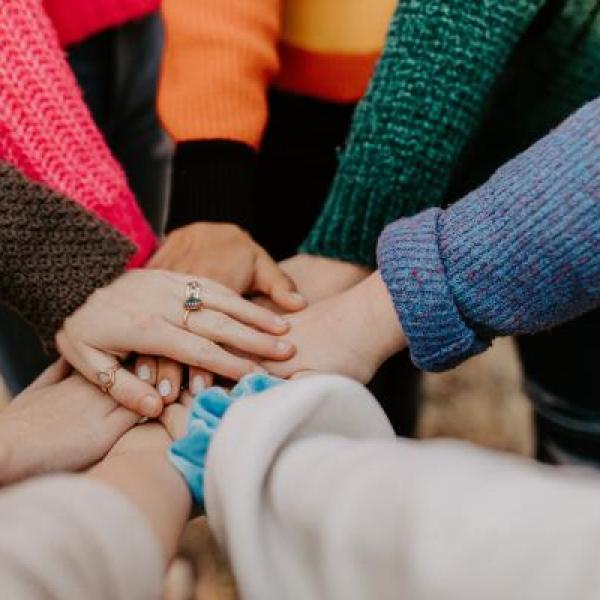What is Pat Hub??
It is our knowledge translation web site created from an alliance between VIU’s Psychedelic-assisted Therapy Graduate Certificate and the Naut sa mawt Centre for Psychedelic Research. The aim of this Hub is to have a free psychedelic knowledge bank where we share the knowledge created by the members of both organizations with the PaT community.
Visual arts, music, academic writing, therapeutic modalities and more to come!
Visit PaT-Hub now
What we understand by knowledge translation...
Translation describes the application of understanding that emerges from one context to another context, without losing meaning in the process (Hanson & Smylie, 2006). In this space, we share knowledge as an offering in this co-created 'third space' - or the space between two distinct ways of knowing.
-
Outside in - Explicit translation: Let's not separate the knowledge from the knower; if we do, knowledge is likely to be viewed as a transaction, or an asset to acquire. An ‘outside in’ approach must be carefully navigated, as the risk of cultural appropriation and relational harm is high. When sharing knowledge with intention, let's ask the knower for permission, and not assume ongoing permission. Let's reference the source from which it came, honoring the relational nature of knowledge sharing.
-
Inside out - Implicit translation: When we learn, let us transform our being to the point that our doing is forever changed. Rather than efforting to apply it in a superficial manner, let's trust that translation will organically emerge in our ways of being, knowing, and doing.
Many of the offerings are provided through story, and we have done our best to provide adequate context. In this knowledge sharing effort, our greatest hope is that we respectfully and relationally embody what Elder Geraldine calls ‘naut sa mawt’ - working together as one mind and one Spirit.
Understanding Knowledge
Is tethered to observable facts, remains at the level of the mind (the knower and the known remain in apparent subject - object dichotomy), and provides an objective lens to test our embodied knowledge against (Fuchs, 2016). Representational knowledge is evident in Western culture by placing a high value on 'research-informed' and ‘expert-informed’ knowledge. Indigenous cultures also seek objective evidence, demonstrated in part by seeking objective council from Elders. If representational knowledge is applied to a context for which it does not belong, incongruent with the cultural context, we run the risk of misappropriation and relational harm (disconnecting knowledge from the knower, and thereby disconnecting the giver and the receiver).
Is tethered to relationship with self, and with those with whom we’ve learned with. It emerges from us organically and effortlessly (the knower is one with the known), and often drives our unconscious behaviours. Embodied knowledge enables a heart and spirit-informed process, aligning closely with the relational aspects of Indigenous ways of knowing, which often flows through the telling of stories, and creative expression. Western ways of knowing also demonstrate embodied knowledge in the professional journey from novice to expert, demonstrated through the ability to fluidly apply content across contexts. Because embodied knowledge becomes part of our intuitive (unconscious) process, it is more likely to flow out of us in ways that are congruent to who we are, and the context we are conditioned in; as a result, the risk of appropriation is low.
Is neither embodied or representational, rather it is the result of having a clear enough vessel for knowledge to flow through, unclouded by the noise of the body or the mind. Wisdom provides the discernment that is required to apply knowledge to various contexts for the greatest good. “All wisdom flows from the highest source… a moment by moment flow, that if we stay open to, we can receive the wisdom in the moment, on how to manage or handle something….we need wisdom to use knowledge. We need knowledge to allow the wisdom to manifest in a way that will serve others. And this is where having your spirituality in action becomes really important" (Rev. Dr. Jessica Rochester, personal communication, March, 2023).




